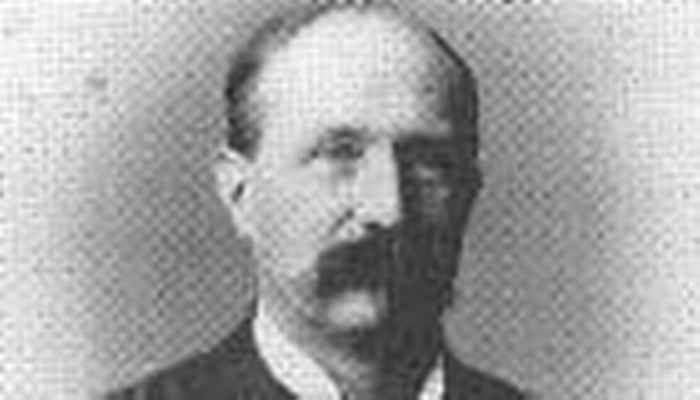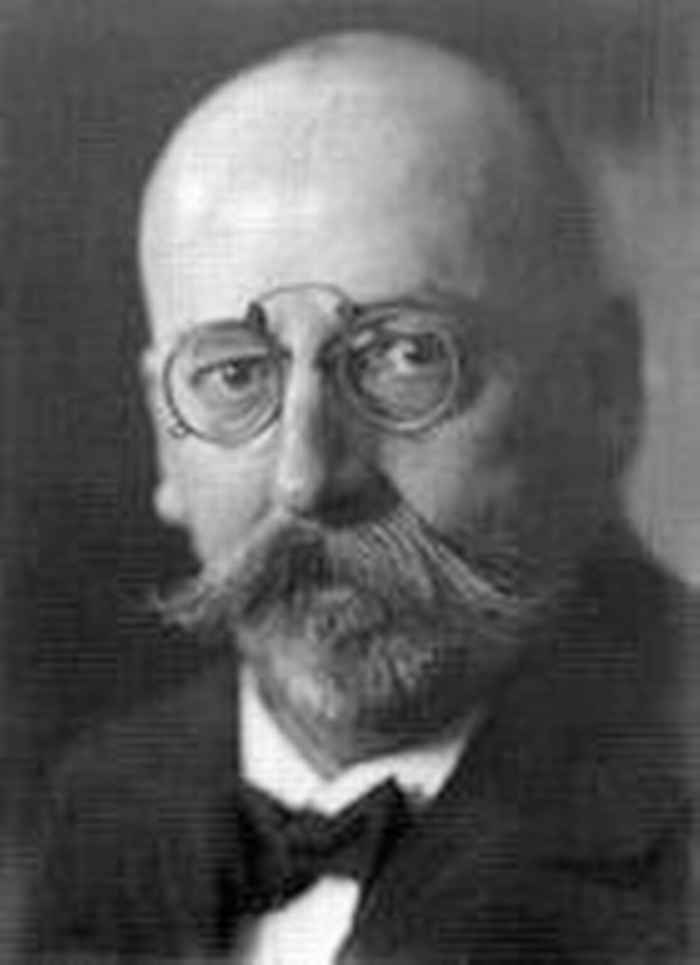D.J. Korteweg and G. de Vries

Life of D.J. Korteweg
Diederik Johannes Korteweg was born on 31 March 1848 in the town of 's Hertogenbosch in the South of the Netherlands, where his father was a judge. This time may be seen as the dawn of the golden age of Dutch science, see the interesting site book by Levelt Sengers about van der Waals and the Dutch School for more information on this period. The period was marked by outstanding and influential investigations of, among others, J.D. van der Waals, H. de Vries, J.C. Kapteyn, J.H. van 't Hoff, H.A.Lorentz, H. Kamerlingh Onnes. One of the prominent scientists, who contributed so much to the cultural life in the Netherlands, was D.J. Korteweg.
Korteweg started his academic studies at the so called "Polytechnic School", now the Technical University of Delft. Because his disposition for mathematics was stronger than that for technical sciences he switched to mathematics, but he kept a great interest in the applications of mathematics in physics and mechanics. He wrote a thesis "On the propagation of waves in elastic tubes" (see links below) under Van der Waals and defended it on 12 July 1878. The University of Amsterdam had just been granted the right to confer doctorates, and so Korteweg became the first doctor of our university. In fact the university existed already since 1632, but only as Athenaeum Illustre. Three years later Korteweg was appointed at the University of Amsterdam as professor of mathematics, mechanics and astronomy. In his inaugural address he stressed the importance of mathematical applications in the sciences.
His influence on academic life in the Netherlands becomes apparent also from his membership of several academic institutions; he was a member of the Royal Academy for sixty years and of the Wiskundig Genootschap (Dutch Mathematical Society) for seventy-five years. As an editor of the 'Nieuw Archief voor Wiskunde' during the period from 1897 to 1941 he contributed greatly to the development of mathematics in the Netherlands.
After a fruitful life D.J. Korteweg passed away at age ninety-three on 10 May 1941.

Life of G. de Vries
Gustav de Vries was born on 22 January 1866 in Amsterdam. He studied in Amsterdam under Van der Waals, Julius, Pesch and Korteweg. The latter also became his thesis advisor. He worked on his thesis while being employed as a teacher at the KMA (Royal Military Academy) in Breda (1892-1893) and at the "cadettenschool" in Alkmaar, (1893-1894).
De Vries defended his thesis "Bijdrage tot de kennis der lange golven, Acad. proefschrift, Universiteit van Amsterdam, 1894, 95 pp, Loosjes, Haarlem" at the University of Amsterdam, 1 December 1894. Shortly afterwards the main results of the thesis were made public in the famous Korteweg - de Vries paper (see paper in pdf, courtesy of Bijzondere Collecties, Universiteit van Amsterdam, UBM: DT 9721):
On the Change of Form of Long Waves advancing in a Rectangular Canal and on a New Type of Long Stationary Waves; Philosophical Magazine, 5th series, 39, 1895, pp. 422–443
He served as a high school teacher at the "HBS en Handelsschool" of Haarlem from 1894 to 1931.
De Vries was married to Johanna Boelen, who taught French language and literature. They had five children. Gustav de Vries died in Haarlem, 16 December 1934.
More about D.J Korteweg
For more information about D.J. Korteweg see: